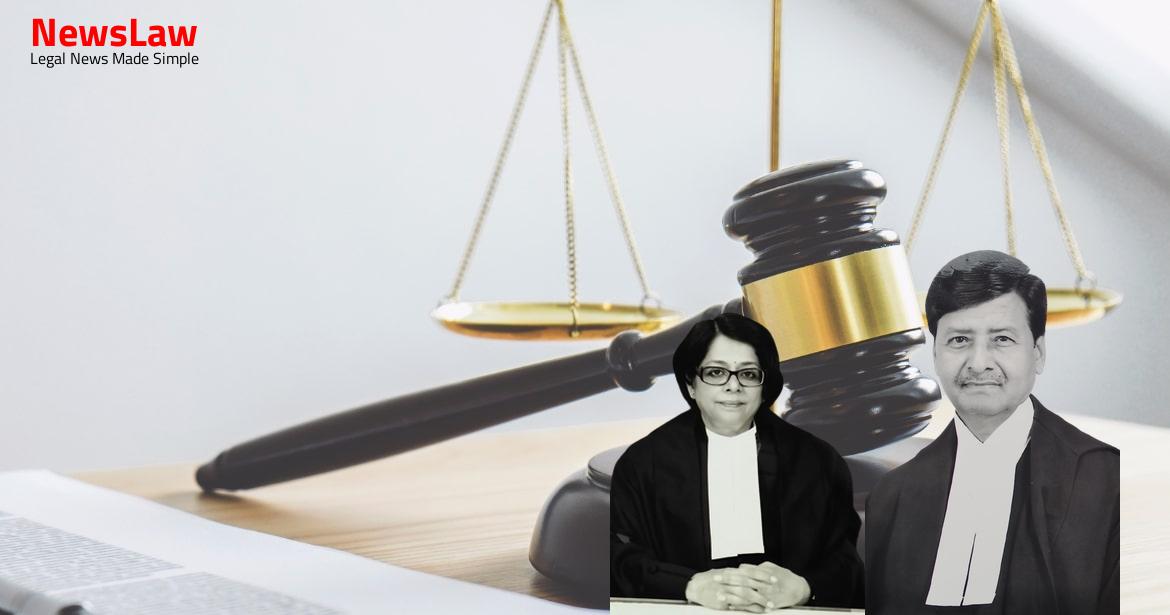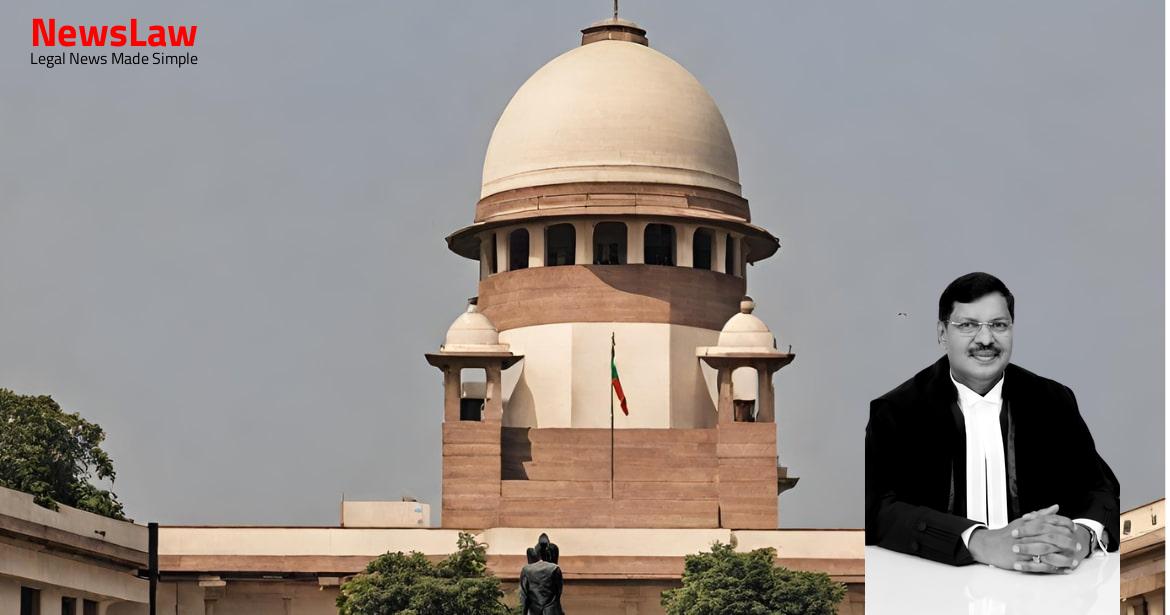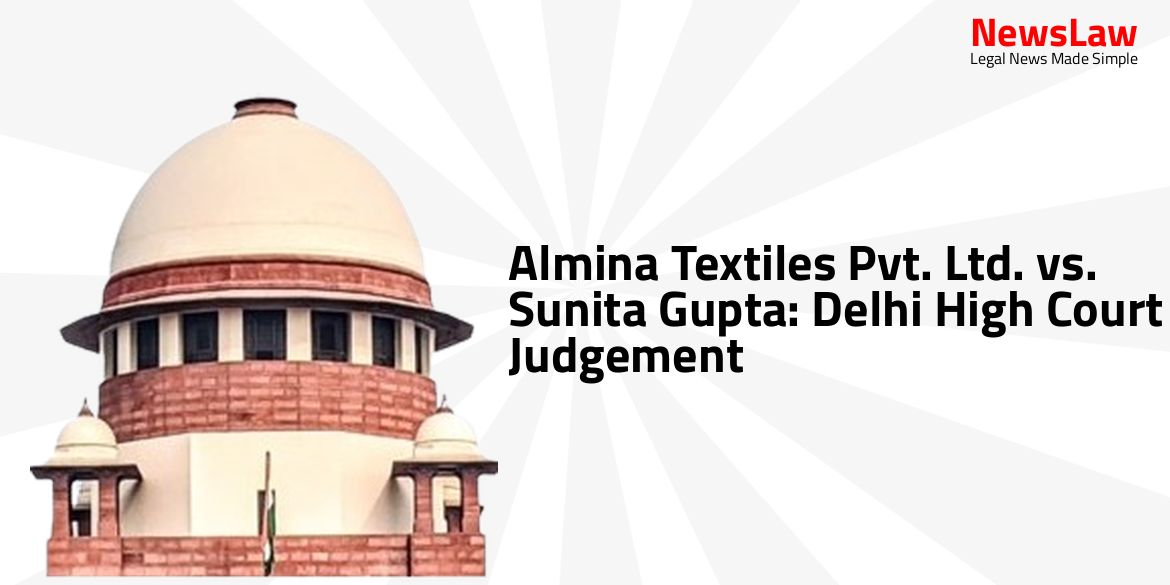Both these Appeals before this Court are by the plaintiff who had filed a suit for specific performance, which was dismissed and later his First Appeal before the High Court was dismissed on the grounds of delay. The only reason assigned by the appellant for the delay of 254 days in filing the First Appeal was that he was not having sufficient funds to pay the court fee! In any case, even it is presumed for the sake of argument that the appellant was short of funds, at the relevant point of time and was not able to pay court fee, nothing barred him from filing the appeal as there is provision under the law for filing a defective appeal, i.e., an appeal which is deficient as far as court fee is concerned, provided the court fee is paid within the time given by the Court.
Also Read: https://newslaw.in/case-type/criminal/procedural-rigidity-and-quashing-of-detention-order/
Section 4.-
Fees on documents filed, etc., in High Courts in their Extraordinary Jurisdiction.—No document of any of the kinds specified in the First or Second Schedule to this Act annexed, as chargeable with fees, shall be filed, exhibited or recorded in, or shall be received or furnished by, any of the said High Courts in any case coming before such Court in the exercise of its extraordinary original civil jurisdiction; or in the exercise of its extraordinary original criminal jurisdiction; In their appellate jurisdiction.—or in the exercise of its jurisdiction as regards appeals from the 1[judgments (other than judgments passed in the exercise of the ordinary original civil jurisdiction of the Court) or one] or more Judges of the said Court, or of a Division Court;—or in the exercise of its jurisdiction as regards appeals from the 2[judgments (other than judgments passed in the exercise of the ordinary original civil jurisdiction of the Court) or one] or more Judges of the said Court, or of a Division Court;” or in the exercise of its jurisdiction as regards appeals from the Courts subject to its superintendence; as Courts of reference and revision.—or in the exercise of its jurisdiction as a Court of reference or revision
The above provision was later enacted, albeit in a differently worded form in the Code of Civil Procedure of 1908, which is present Section 149.
The above section therefore mitigates the rigour of Section 4 of the Court Fees Act and it is for the court in its discretion to allow a person who has filed a memorandum of appeal with deficient court fee to make good the deficiency and the making good of such deficiency cures the defect in the memorandum not from the time when it is made but from the time when it was first presented in court. In Mannan Lal (supra), this aspect was dealt in rather detail, where the Court referred to several decisions of different High Courts on interpretation of Section 149 CPC and Section 4 of Court Fees Act. In the main judgment under appeal, the reasoning appears to be that the memorandum of appeal had no effect before the making good of the deficiency and as the same took place after 12th November 1962 the appeal was not saved by Section 3(2) of the U.P. The filing of a memorandum of appeal therefore brings an appeal into existence; if the memorandum is deficient in court-fee, it may be rejected and if rejected, the appeal comes to an end.
But then, under the facts and circumstances of the case, the reasons assigned for the delay in filing the appeal cannot be a valid reason for condonation of the delay, since the appellant could have filed the appeal deficient in court fee under the provisions of law, referred above. Therefore, we find that the High Court was right in dismissing Section 5 application of the appellant as insufficient funds could not have been a sufficient ground for condonation of delay, under the facts and circumstance of the case.
Also Read: https://newslaw.in/case-type/civil/land-resumption-and-annulment-setting-aside-impugned-orders/
Thus, in the instant case, there was no occasion to invoke the provisions of Section 5, Limitation Act, or of Rule 4, Chapter I of the High Court Rules. The law on the issue can be summarised to the effect that where a case has been presented in the court beyond limitation, the applicant has to explain the court as to what was the “sufficient cause” which means an adequate and enough reason which prevented him to approach the court within limitation.
In case there was no sufficient cause to prevent a litigant to approach the court on time condoning the delay without any justification, putting any condition whatsoever, amounts to passing an order in violation of the statutory provisions and it tantamounts to showing utter disregard to the legislature.”
Therefore, we are of the considered opinion that the High Court did not commit any mistake in dismissing the delay condonation application of the present appellant. No the admitted position in the State of Himachal Pradesh is that under Section 118 of the Himachal Pradesh Tenancy and Land Reforms Act, 1972 (for short ‘1972 Act’), only an agriculturist, which is defined under Section 2(2) of the 1972 Act, can purchase land in Himachal Pradesh, which would mean a landowner who personally cultivates his land in Himachal Pradesh.
Transfer of Land to non- agriculturist barred: – (1) Notwithstanding anything to the contrary contained in any law, contract, agreement, custom or usage for the time being inforce but save as otherwise provided in this Chapter, no transfer of land (including transfer by a decree of a civil court or for recovery of arrears of land revenue) by way of sale deed, gift, will, exchange, lease, mortgage with possession, creation of a tenancy or in any other manner shall be valid in favour of a person, who is not an agriculturist.] 2[Explanation.
What was done instead was, that when the purchaser failed to get the requisite permission from the State Government under Section 118 of the 1972 Act, it assigned its rights to the Plaintiff (i.e., the present Appellant before this Court), and the Plaintiff in turn filed a suit for Specific Performance against the defendants i.e., Surender Singh-Defendant
All other conditions which have been stipulated in the Agreement to Sell depended on this primary condition i.e., permission from the State Government, under Section 118 of the 1972 Act. A person who is not an agriculturist can only purchase land in Himachal Pradesh with the permission of the State Government. Section 118 was introduced with a view to restrict the transfer of land in favour of non- agriculturist except to specified persons as contained in the Section itself. The provision was introduced as rich persons who were not agriculturists were purchasing agricultural land in Himachal Pradesh at high price exploiting the local Himachali people.
Case Title: AJAY DABRA Vs. PYARE RAM (2023 INSC 90)
Case Number: C.A. No.-000716-000716 / 2023



